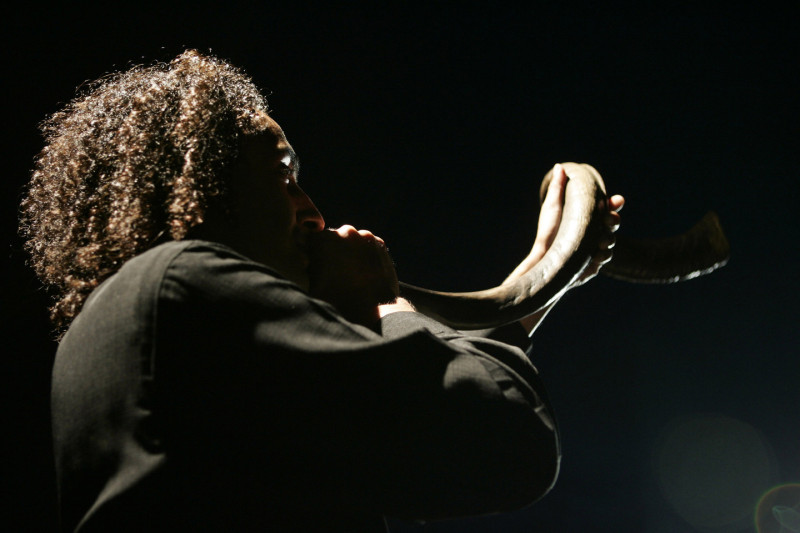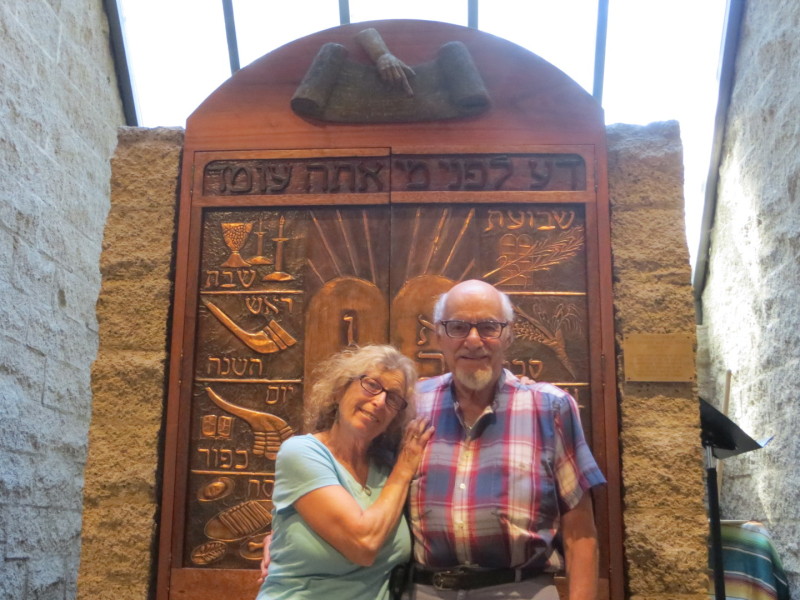How Some Deaf People 'Hear' the Shofar for Jewish New Year

This weekend marks the culmination of the Days of Awe, a time of intense soul-searching that began with Rosh Hashanah, the Jewish new year. Jewish communities gather to listen to the trumpetlike blast of the shofar, a ram’s horn, to wake themselves up to the hopes and possibilities of a new year.
It’s one of Judaism’s most powerful traditions. But what happens if you can’t hear the shofar? Is the spiritual in the sound?
Temple Beth Solomon of the Deaf in Northridge spends a lot of time pondering these questions. The synagogue rents a chapel from a hearing synagogue, Temple Ahavat Shalom. Like any hearing community, Beth Solomon plans retreats, organizes weekly card games and has an active sisterhood. With imagination, creativity and sign language, Rabbi Deborah Goldmann and interpreter Jan Seeley work to bring an ancient tradition to the deaf world.
What happens if you can’t hear the shofar? Is the spiritual in the sound?
The sound of the shofar creates a mysterious, ineffable feeling in the hearing world. But at a synagogue for the deaf, that sound may be entirely lost in translation. That’s why Goldmann asks her congregants to focus on the shofar’s vibrations instead. In order to experience the haunting blast, she encourages everyone to hold on to balloons, the wooden podium, or even the shofar itself.
The effects are polarizing because there’s a whole spectrum of deafness at the synagogue. Some congregants are completely deaf, others are hard of hearing, and some have cochlear implants.
“I’m stone deaf,” says Joe Slotnick, president of Beth Solomon. Slotnick lost his hearing to meningitis when he was 3. His parents used every means possible to keep him from feeling isolated in the world. Looking back, he’s still astonished at everything he has accomplished.
“I’m amazed that I went to Harvard,” he says. “I’m amazed. I don’t know how I did it.”
After Harvard, he worked for decades in computer programming. It’s almost as if no one ever told him that he’s deaf. But then this time of year comes around. The Jewish scholar Maimonides said that Jews are obligated to hear the sound of the shofar -- which is something that’s not part of his world at all.
“I know some people love it and they’re very moved by it, but for me, no,” he explains. “I have no concept of sound at all.”

He can feel the shofar’s vibrations, but that doesn’t make it meaningful for him. Instead, Slotnick’s spiritual wake-up call has to be seen. When he remembers moments of awe in his life, what comes to mind is a beautiful snowfall during his childhood in Massachusetts.
Other deaf congregants find the shofar deeply moving. Florence Haberman lost her hearing after two traumatic falls when she was a child. Even though she’s deaf, she can hear loud sounds with the help of her hearing aids. Growing up in a family that regularly attended a hearing synagogue, Florence found her religion isolating and confusing. It wasn’t until she heard the ear-splitting shofar blast that something finally reached her.
“When I was a child during the High Holiday, I would sit and just fidget and cry,” Haberman explains. “And they kept telling me to be quiet and sit still. ‘Be quiet!’ And then they would blow the shofar and I immediately would hear that sound. Like it was coming right to me and pulling me. It’s almost like the vibrations paint a picture. So it’s chilling.”
The Days of Awe are about what Jews call teshuvah, or return. It means returning to yourself, apologizing for missteps and remembering what really matters. Haberman experiences the Days of Awe as an incredibly personal feeling of return.
“You know, even before my accident, I remember the music. And when I come to temple, or any time there’s music, I do remember it.”
Whether it’s a haunting sound, a deep vibration or the memory of snowfall, the congregants at Beth Solomon find a way to return to themselves while looking forward to the year ahead.